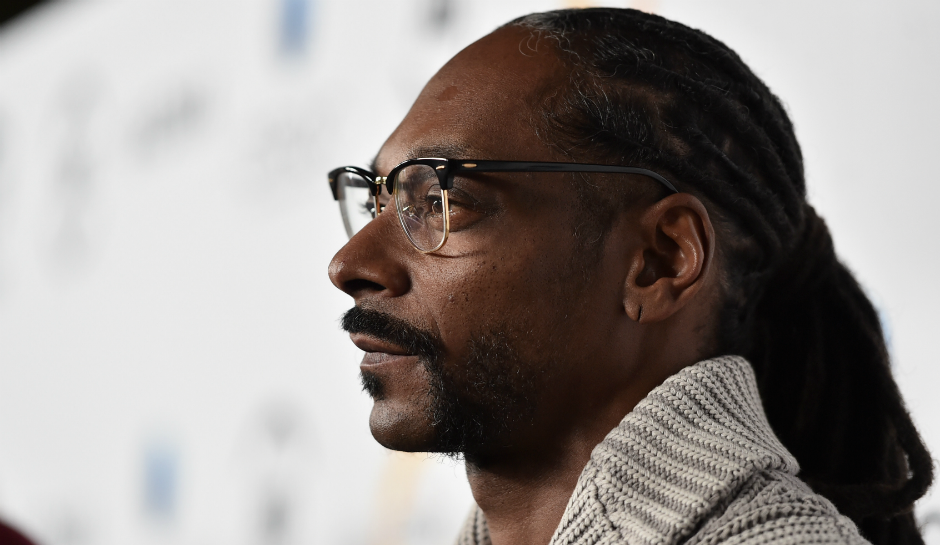Rapper, Snoop Dogg Opens Up About His Opinion On Roots’ Remake
Snoop Dogg is not one to hold back. Whether it’s skits, lyrics, or just conversation, Snoop D.O. double G always makes sure that his point is reached and understood. In fact, social media has kind of kept Snoop in constant conversations–even when he is not releasing music. He fully encompasses the idea of making oneself an entity, including his own self-promotions through his videos.
So, when he released his tirade against the new Roots miniseries that premiered on the History Channel, many people felt it was out of line.

“I’m sick of this [expletive]. How the [expletive] they gonna put Roots on Memorial Day?” Snoop said in a recent selfie video. “They just going to keep beating that [expletive] into our heads as to how they did us, huh?”.
Now, that is an honest sentiment, which has been mentioned many times from many different factions. Yet, somehow Roots has a cult-like following. One easily angered, not by the audacity of a Hollywood studio to remake an original classic moment in American media and domestic relations, but for any criticism out of the black community. Let us be real; our country’s major mass media sources have an issue with the portrayal of us as anything other than slaves, fools, or drug lords.
Let’s break it down. People wanted black actors for honest portrayal in movies, like Exodus and Gods of Egypt. Popular opinions, even Egypt itself was offended that they left out black actors for major roles. Somehow, the rationale or excuse became “That won’t make money”. In that time, we have had two major grossing films focused on slavery or the slave trade (12 years a Slave and Django Unchained). They were nominated in multiple categories–yet, no one spoke about how the screens had lots of black bodies (not a lot of dialogue) and still packed seats.

We not only have Roots on tv but WGN’s original series, Underground, was just premiered this year. Even with Exodus and Gods of Egypt, people were offended that majority of the slaves were black bodied and melanin high. So, we have constant reminders that we were slaves, and they all seem to just end at the point when African-Americans really came to fruition.
Before that, we were chattel, a word invented basically for us. We were moving, living, traveling property. Not a chair you could leave outside and it becomes whoever else wants it. We were told we were someone else’s property–even if we were five-hundred miles away. Constant reminders that even when you felt free, you were not and you had to return to reality/”massa”. Every time a slave movie or show is made, I feel like it is that reality calling us back to the shed behind the big house.
So, maybe I am one of the few, like Snoop, who seem to think that maybe it’s time to emancipate our imagery from the shackles of the Maafa (African holocaust), and start looking at stories that show our growth and self-progressions. Not our shared bindings and bureaucratic patience. Not our servitude and inhumane treatments.
We also have to understand that while we are apart of the population, and we are a vocal group with vast media portrayal and influences, mass media was never meant for us specifically. In fact, some may say that the birth of films and the idea of a blockbuster was born from D.W. Griffiths Birth of a Nation. A silent film about the near destruction of the country due to emancipation, of the enslaved and reconstruction. This film introduced the K.K.K. as heroes of a white and righteous cause.
Griffith’s budget started at $40,000 (roughly $940,000 today), but rose to over $100,000 (the equivalent of $2,340,000 in constant dollars). So, the idea that black suffering could be lucrative (minus really any black actors) was born at the same time Hollywood was born. Being that we keep going back to that era or moments right after slavery ended, what does that not only say about the projected audiences but the leading studios as well?
So, Snoop has an opinion, which holds honest merit. It’s sad how many people want to put him to task over that, but not hold studios or directors over that same fire. Maybe when we boycott a film or show created “for us”, we can step out of that western gaze for a moment and actually evaluate what we are and where we came from. Then, we can start opening up those perspectives to show the full range of contributions African-Americans have made. The stories and narratives of our enslaved ancestors are needed, especially so we do not repeat those mistake. Yet, the greatest disservice is placing the stories or narratives of one group of our ancestors over the many other voices who want to speak or be heard.
Also, we have to be honest, Roots is compelling television. It takes some liberties historically, yet it is constructed as a beacon of hope during dark times. From the book to the film, it is as well constructed and as emotional consuming as watching the full Godfather trilogy without any pauses. We never expected or allowed the Godfather to define or build up the imagery or the self-esteem of Italian and Italian-American culture. Why hold Roots to that standard when in relation to black opinions or imagery? For all the greatness that is Alex Haley’s presumed history, we cannot pretend that the imagery of Roots was ever made to make us proud to be American. It is a story about taking the cards you’re dealt and still striving and believing for better to come. Roots speak about surviving the oppression and persevering through tough times. While that is a beautiful idea, it seemingly goes against the current narrative and issues that Black Americans have been pushing. During protest for more liberties and a demand to make ‘#blacklivesmatter’ to policy makers and voters alike, why recreate a miniseries about color? More importantly, why create recreate a miniseries about ultimately being broken into submission at a time when we want to talk about the breakthroughs individuals have made. It is kind of sad to me, that at a time when we have so many young and talented black artist, mixed with older dynamic actors, the only historical accuracy we get is from slave narratives.
So, yes, I feel your pain, Snoop.

